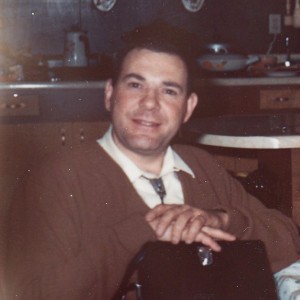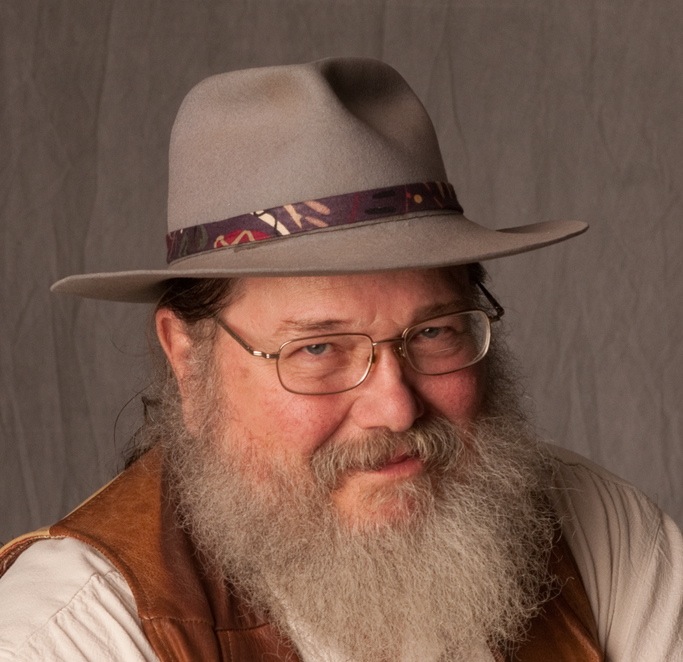 Almost 20 years ago Dr. Henry Poore sat across from me in the studio of KAFF Country 93.5 FM and allowed me to interview him about his early days in Flagstaff for the show Under Western Skies. He talked of waiting for a pack train of burros to cross Highway 89 on its way to restock a sheep camp on the peaks. He spoke of the Navajo families with horse-drawn wagons coming in from the reservation and camping in the town park for the big Pow Wows. Then he told a story about an old man living out his last days just a mile from where my home stood, who looked to the compassion of a dying country doctor to feed him through an old fashioned Flagstaff winter. Time stood still as a master storyteller held forth. Dr. Poore finished talking and I looked at the tape recorder to make sure it was rolling. It was not the first or the last time I had heard him relate an engaging tale, but I sensed there was something about this experience that was a landmark for him. I was hardly the first person to encourage him to write down his experiences to share with a wider audience and in 2006 Goose River Publishing released Lessons Remembered: Memoirs of an Audacious Country Doctor. Dr. Poore was generous enough to share this telling of “Two Men Named Charlie” from his book.
Almost 20 years ago Dr. Henry Poore sat across from me in the studio of KAFF Country 93.5 FM and allowed me to interview him about his early days in Flagstaff for the show Under Western Skies. He talked of waiting for a pack train of burros to cross Highway 89 on its way to restock a sheep camp on the peaks. He spoke of the Navajo families with horse-drawn wagons coming in from the reservation and camping in the town park for the big Pow Wows. Then he told a story about an old man living out his last days just a mile from where my home stood, who looked to the compassion of a dying country doctor to feed him through an old fashioned Flagstaff winter. Time stood still as a master storyteller held forth. Dr. Poore finished talking and I looked at the tape recorder to make sure it was rolling. It was not the first or the last time I had heard him relate an engaging tale, but I sensed there was something about this experience that was a landmark for him. I was hardly the first person to encourage him to write down his experiences to share with a wider audience and in 2006 Goose River Publishing released Lessons Remembered: Memoirs of an Audacious Country Doctor. Dr. Poore was generous enough to share this telling of “Two Men Named Charlie” from his book.
Join Dr. Poore and his wife Nina, along with his seven children and a cast of musicians and the wonderful volunteers of the free Poore Medical Clinic on Sat, Sept. 26 at the Orpheum Theater, 15 W. Aspen, for the fourth annual Beans and Rice Fundraiser. Henry and the Poore Boys and the Poore Girls will reveal A Day in the Life of a Country Doctor through true stories and truer songs. There will also be a stage show, raffle for great prizes and live auction with the notorious Col. Russell Mann. Doors open at 5 p.m. and the show begins at 6 p.m. Tickets are $15 and will be available at the door.
‘Two Men Named Charlie’
I first saw Flagstaff in May 1962. We’d left Virginia in a Ford station wagon pulling a 26-foot Airstream trailer, looking for a low-allergy country that my wife Nina could tolerate.
We crossed Tennessee, Arkansas, Oklahoma and Texas into New Mexico. The Continental Divide runs through New Mexico, and I declare it is uphill anyway that you go. The wind was fierce in New Mexico, and when we reached Gallup a full-blown dust storm had developed. We pushed on into Arizona and found a place to park for the night in a clearing on the side of the road. Mind you, we had crossed some bleak desert, and we awoke to one of the biggest surprises of our lives.
We were parked in a forest of huge Ponderosa pines and in the background out of our window loomed the snow-covered San Francisco Peaks, 12,675 feet in elevation. The sky was so blue and the air was so rarified and clear that it seemed almost sinful to breathe it.
Flagstaff was nestled at the foot of that mountain, 11,000 people at that time, with a small teachers college. Our children had strep throats so I went downtown to Joe Rowe’s drugstore to buy some penicillin, but being from out of state, the druggist refused to sell me any medicine.
“I’ll call Dr. Sechrist for you,” he said.
Charlie Sechrist had come to Flagstaff in the 1920s and had practiced medicine and surgery there for many years. In 1962 Flagstaff’s economy was still dependent on the sheep and cattle industries, and one could still see horses tied along the side streets. I was absolutely captivated by the town.
When I got back to my trailer Dr. Sechrist had already been there and the children had been given shots of penicillin. I went to his office the next morning to pay him, but he refused any money.
Shortly thereafter I did. I learned many practical things from him. For example: to build a cast of plaster of Paris was expensive, so Charlie would build a pine box to fit a broken leg, then fill it with a mixture of grass, clay and water (adobe!), bake it in the sun and he had a good, inexpensive cast. Years later in Africa we used that same technique and I never saw an infection from it.
I soon learned that Dr. Sechrist had incurable cancer, so I took over more and more of his work. He saw all the poor people in town (and there were many) usually at no charge. A man once told me, “If you don’t want Dr. Sechrist to come to your house, you’d better not call him.”
One night Dr. Sechrist called me and asked me to go out to Doney Park to see old Charlie Rice who was sick. I got in my old Model A Ford (I still have it) and made my way to a small cabin several miles from the main road. A wizened, small, elderly man met me at the door and introduced himself. He had come to Flagstaff from Texas on a cattle drive and had homesteaded his ranch. He was almost 100 years old at the time. I treated his pneumonia and started to pack up my black bag to leave.
‘”Where’s my beans?” he asked.
“What beans?”
“Charlie Sechrist always brings me a sack of beans for the winter.” he explained.
“He didn’t mention it to me.” I replied. I went back to town and called Dr. Sechrist.
“Charlie Rice said you didn’t send him any beans.” I said.
“Goodness, I forgot it. Would you mind taking them back out there for me?”
I said I would, so he said, “Meet me at my office.” In his office was a big sack of pinto beans and a sack of rice. There was a stack of paper bags, a scoop and a sign that said “Help Yourself.”
“What’s this?” I asked.
“That’s for my poor people.” he replied.
The snow had started to fall and the old Model A slipped and slid its way back to Charlie Rice’s cabin. I gave him his beans and on the way back to town I reflected on Charlie Sechrist’s mission in life and. his stature as a man.
When Dr. Sechrist died he had treated the people of Flagstaff for more than half a century. He had built the hospital and given it to the city, he had served on the school board and had a school named for him. His death ended a pioneer era and it was my privilege and honor to have known and worked with him.
I defy you to find a sack of beans or a sack of rice in any doctor’s office today! HMOs and insurance just don’t cover these things.

